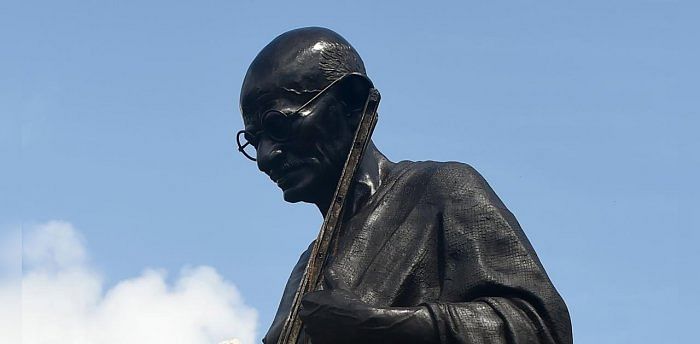
M K Gandhi’s message has never been as relevant in the past as on the 75th anniversary of his martyrdom. His legacy has never been questioned as much as it is now, and that increases his relevance.
He was among the most interpreted and commented on leaders of the last century, perhaps of all time. Greatness is never measured in full and that is why successive generations make newer discoveries and gain fresh insights from the lives of the great. He had maintained that his life was his message, and he considered his life as the sum total of his experiments with truth.
The search for truth has contrarian connotations in a post-truth world. But Gandhiji’s truth was anchored in simple and elemental life, undefined by divisions, but expressed in terms of the time and climes he lived in. His sense of truth was influenced by his circumstances, but that did not diminish its value. It was his ability to be local and universal and specific and general at the same time that made his life great and appealing to all people at all times.
The challenge to Gandhi’s legacy can be understood only if we know what he created and how he did so, and what it represented. In the first place, he changed the idea of freedom that many pioneers of the struggle against the British had till then.
He expanded it from the idea of political freedom from the British to economic, cultural and moral freedom which could only be gained by fighting ourselves. This idea of freedom was not an abstraction, he grounded it in the commonalities of life in India, found symbols for it like the charkha, and developed a technique to achieve it in satyagraha. With him, the national movement expanded from the anti-British sentiment of a limited Western-educated class to the aspirations of all people—Hindus, Muslims, farmers, workers, students, women and all others.
With that he also created the idea of an inclusive India and became its symbol, the man becoming the change he wanted to see.
Gandhi developed the ideology to support this idea of India from our own traditions, social, political, cultural and intellectual. Otherwise it would not have appealed to the whole country. This vision is being challenged now, based on a different reading of the past and inspired by a narrower vision of the future. Much of the Idea of Gandhi has been abandoned and vandalised by everyone, including governments, parties, individuals, all of us, over time. Now its essential core is under stress. The anniversary of his departure is the time when we should consider retrieving it.